Laughter, the Soul’s Secret Medicine
PLUS: Lil Rel on the Soul Boom podcast
This edition of the Soul Boom Dispatch has arrived in your inbox on September 11. It’s a date heavy with memory and sorrow, a day that reminds us of how fragile life can be and how much we depend on one another to get through. Which, in its own way, makes it the perfect day to talk about laughter—not as a distraction from grief, but as one of the strange medicines that helps us carry it.
In the episode of the Soul Boom podcast we’re sharing today, Rainn sits down with Lil Rel Howery—comedian, actor, Chicago son, and the kind of guy who can make you laugh so hard you forget you were crying a minute ago.
You know him from Get Out (yes, the TSA agent friend who was absolutely right about everything), Free Guy, Bad Trip, and a mountain of stand-up specials.
But here’s something you may not know: Rainn and Rel also star together in the new film Code 3, a comedy-drama about two weary EMT partners just trying to make it through one very bad day in Los Angeles. The film lands in theaters tomorrow (September 12). Which means you get to hear these two riff about comedy, grief, faith, and survival, and then watch them ride in an ambulance together, sirens blazing, trying to save lives while cracking jokes. Not a bad spiritual double feature.
What struck us most in this conversation—and what you’ll hear—is how much heart, faith, and raw honesty Rel brings to the comedy stage. This is not just a guy trying to rack up Netflix specials; this is a man who has stared grief in the face, battled panic attacks, wrestled with the decline of community, and found that his truest weapon is laughter. And not the surface-level, “scroll TikTok for ten minutes to feel better” kind of laughter. We’re talking about soul-deep, belly-shaking, endorphin-surging, God-adjacent laughter.
Rel opens up about grief, anxiety, growing up on Chicago’s West Side, and why comedy became not just a career, but a kind of survival. And that got us thinking—could it be that laughter might just be one of the most potent medicines available to humankind?
The First Medicine
Let’s begin with a simple but audacious claim: laughter is a spiritual practice.
Across cultures and centuries, laughter has always carried a sacred quality. The Hopi tell stories of clowns who bring balance to the village by mocking authority. Renowned Sufi poets—the great mystics of Islam—use jokes to slip divine truths past the intellect and into the heart. And in Rainn’s own Bahá’í Faith, while it’s not known for stand-up sets (there’s no Book of Dwight in the canon), joy is considered a sign of spiritual health.
As Anne Lamott once put it, “Laughter is carbonated holiness.” We’ve all experienced that in our laughter—it bubbles up, lifts us, fizzes through the body like something more than chemical. It’s divine effervescence. And as ‘Abdu’l-Bahá reminded us: “It is good to laugh… laughter is spiritual relaxation.” In other words, laughter isn’t a distraction from spiritual life—it’s part of it. It loosens the grip of worry, tension, and fear, allowing the soul to breathe again.
In The Bassoon King, Rainn confessed that comedy was his lifeline in those awkward, painful teenage years when he felt like an alien observing “normal” human behavior and trying desperately to copy it. He was anxious, lost, and more than a little weird. But when he got someone to laugh—even just a chuckle—he felt like he belonged on this strange planet. The laugh was medicine. It was communion. It was a reminder that, despite the emotional dysfunction swirling around his childhood home, there was still a way to connect.
Think of laughter as a kind of spiritual acupuncture. It doesn’t erase the suffering; it re-routes it, jolts it, forces it into circulation until something begins to heal. “Laughter gives us distance,” Bob Newhart once said. “It allows us to step back from an event, deal with it and then move on.” Exactly. It’s perspective in giggle form.
If you’ve ever been at a funeral where someone tells a story so outrageous and so perfectly human that the whole room erupts in laughter through tears, you know what we mean. That laugh is not disrespect. It’s release. It’s the soul saying: “Yes, this hurts. But yes, life is still absurd and astonishing and worth living.”
As Rainn writes in Soul Boom, the great spiritual traditions point us toward the same elemental experiences: wonder, compassion, and joy. If tears are the baptism of the heart then perhaps laughter is the eucharist of the body.
Neuroscientists will tell you that laughter floods the brain with dopamine, endorphins, and oxytocin—the so-called “love hormone.” Translation: laughter makes us feel safe. Connected. Less alone. Which, when you think about it, is the whole point of religion: to remind us we’re not alone. Laughter doesn’t just reflect joy; it generates it. It builds it from the ground up, like a house of happiness made out of chuckles.
This is why Rel’s comedy hits so hard. He’s not afraid to lace the punchline with truth. Anxiety attacks, systemic racism, the absurdities of organized religion—he’ll mine it all. And because he’s lived it, when he laughs about it, we’re invited into the medicine with him.
A Cosmic Joke
There’s a concept in Hindu philosophy called “lila,” the divine play. It’s the idea that the entire universe is God’s improv comedy set—cosmic hide-and-seek, performed for the sheer joy of it. The Big Bang itself, one might say, was the ultimate punchline.
When we think of laughter in that sense, it’s not trivial at all. It’s metaphysical. It’s a clue about the universe’s personality. “At the height of laughter,” the philosopher Jean Houston wrote, “the universe is flung into a kaleidoscope of new possibilities.”
Of course, not all laughter is sacred. There’s cruel laughter, cynical laughter, the mean-spirited laughter of mockery. That’s not medicine—that’s poison. But the laughter that bursts out of us when truth and absurdity collide? That’s the good stuff. That’s soul medicine.
What We Lose Without It
We live in a culture where despair is pandemic, where loneliness has the same health effects as smoking fifteen cigarettes a day, where news feeds keep us angry and anxious but rarely laughing. In that environment, comedy isn’t just entertainment. It’s survival.
As Kevin Hart put it: “Laughter heals all wounds, and that’s one thing that everybody shares. No matter what you’re going through, it makes you forget about your problems. I think the world should keep laughing.”
When Lil Rel cracks a joke about his upbringing, he’s not just making us guffaw—he’s stitching community. He’s re-creating that church basement, that neighborhood stoop, that corner where laughter pushes back the darkness.
Laughter is not the opposite of a serious and purposeful life—but its companion. Our souls can giggle even as they groan. Sometimes all it takes to transform despair into hope is a laugh.
Laughter is more than what keeps us entertained. It’s what keeps us human. As Victor Borge is said to have quipped, “Laughter is the shortest distance between two people.” In a fractured, lonely, anxious world, isn’t that the real medicine we’ve been searching for all along?
So dear Soul Boomlets, take your medicine. Laugh loudly, laugh often, and in community. And no, not the kind of “medicine” pushed by that wellness influencer trying to sell you Himalayan oxygen drops and powdered moonlight for $39.99 a vial. We mean the real stuff: laughter. The kind you can share with friends, family, or even a room full of strangers with popcorn stuck to their shirts. And hey, we don’t want this to sound like an ad, but maybe the best way to actually practice that ritual of shared laughter is to grab a ticket, sit shoulder-to-shoulder with strangers, and let Code 3 carry you into that medicine this weekend—because nothing says ‘sacred human connection’ quite like two strangers locking eyes mid-popcorn snort.
So what do you think, Soul Boomlets—what’s humor’s role in your life—and in the spiritual revolution we’re building together?


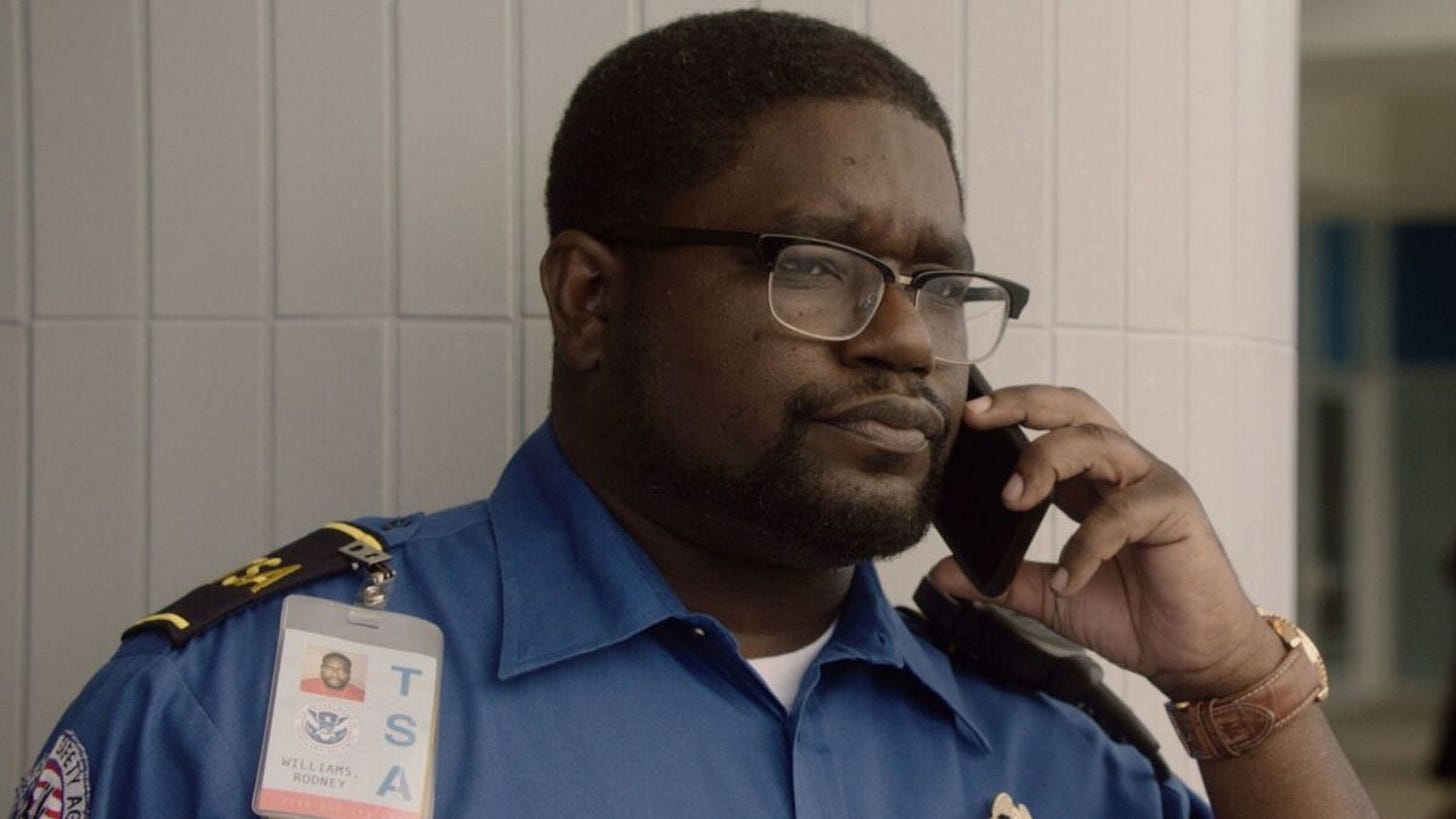
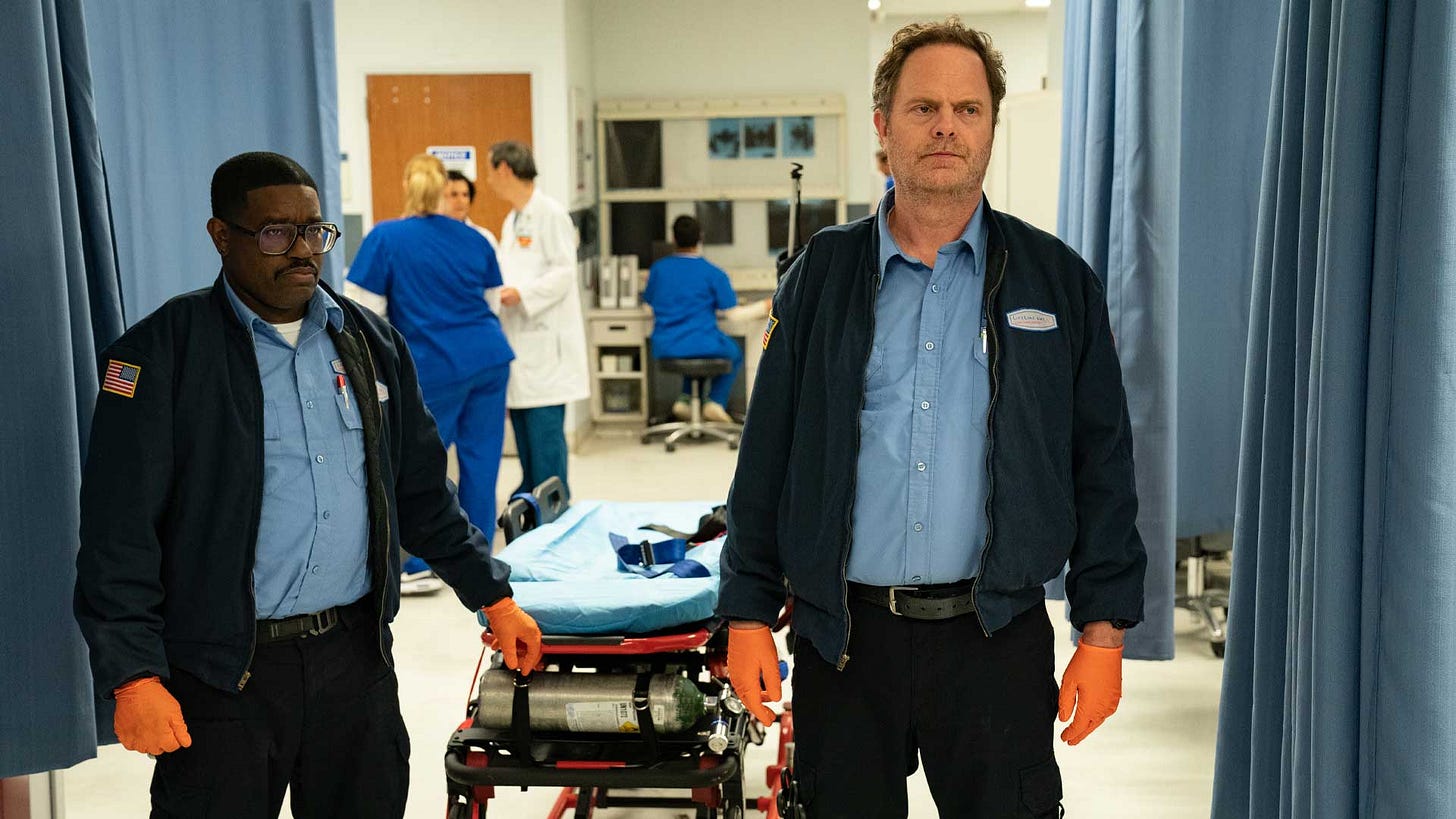
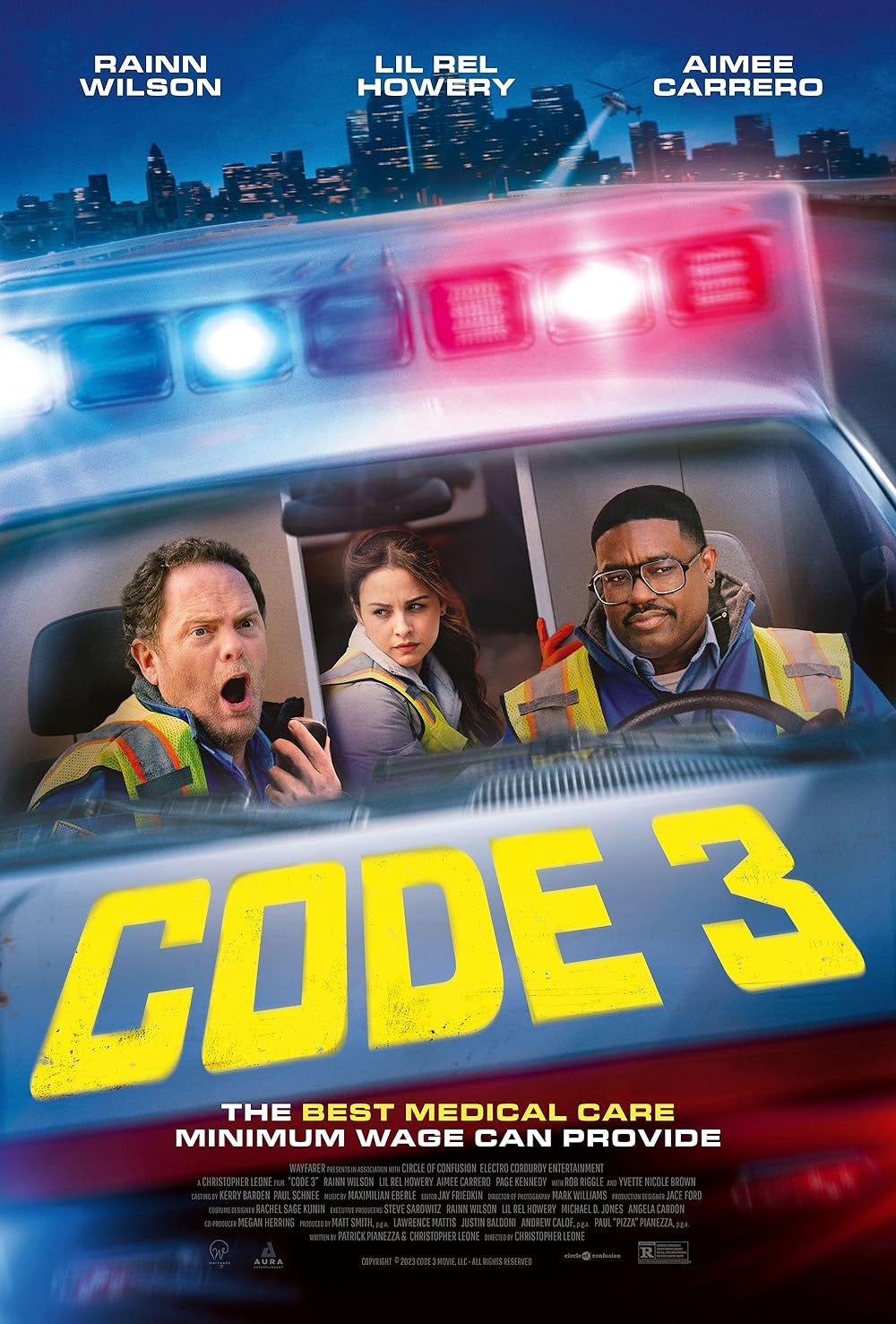
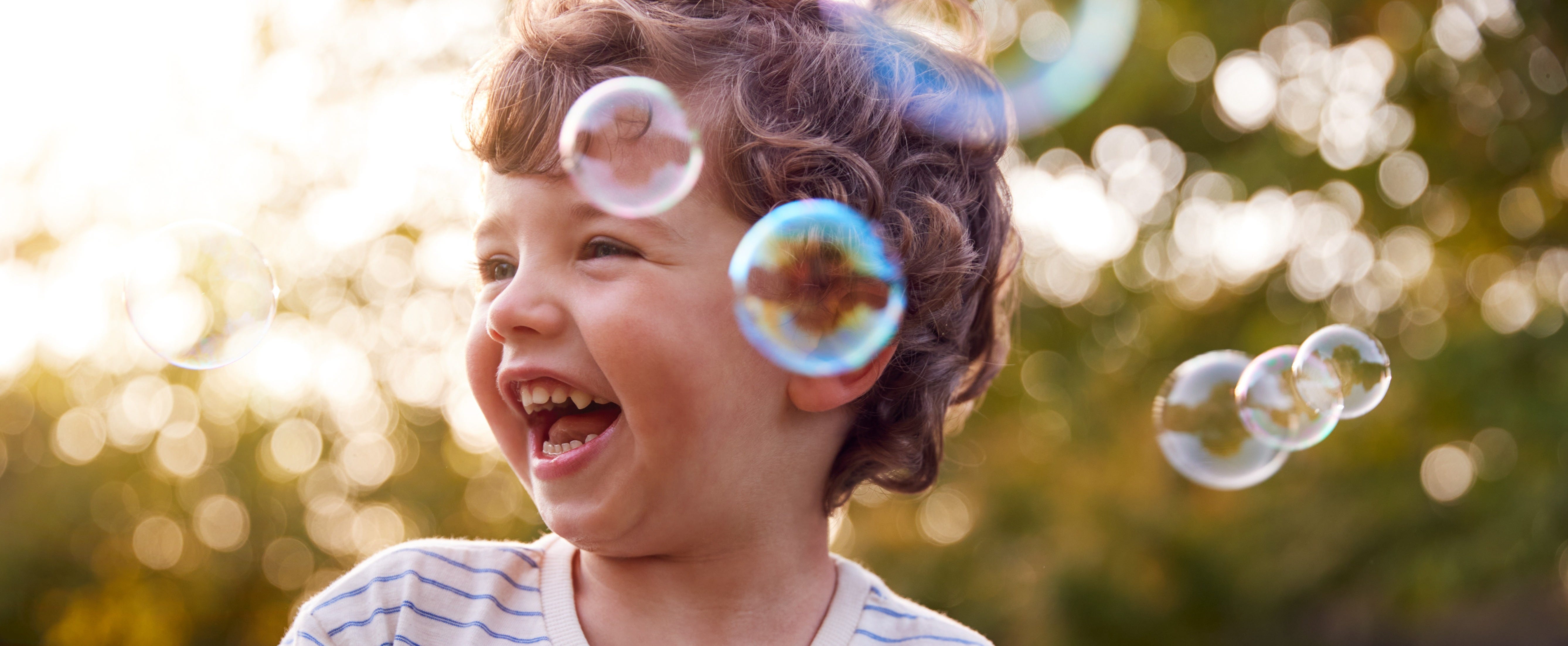
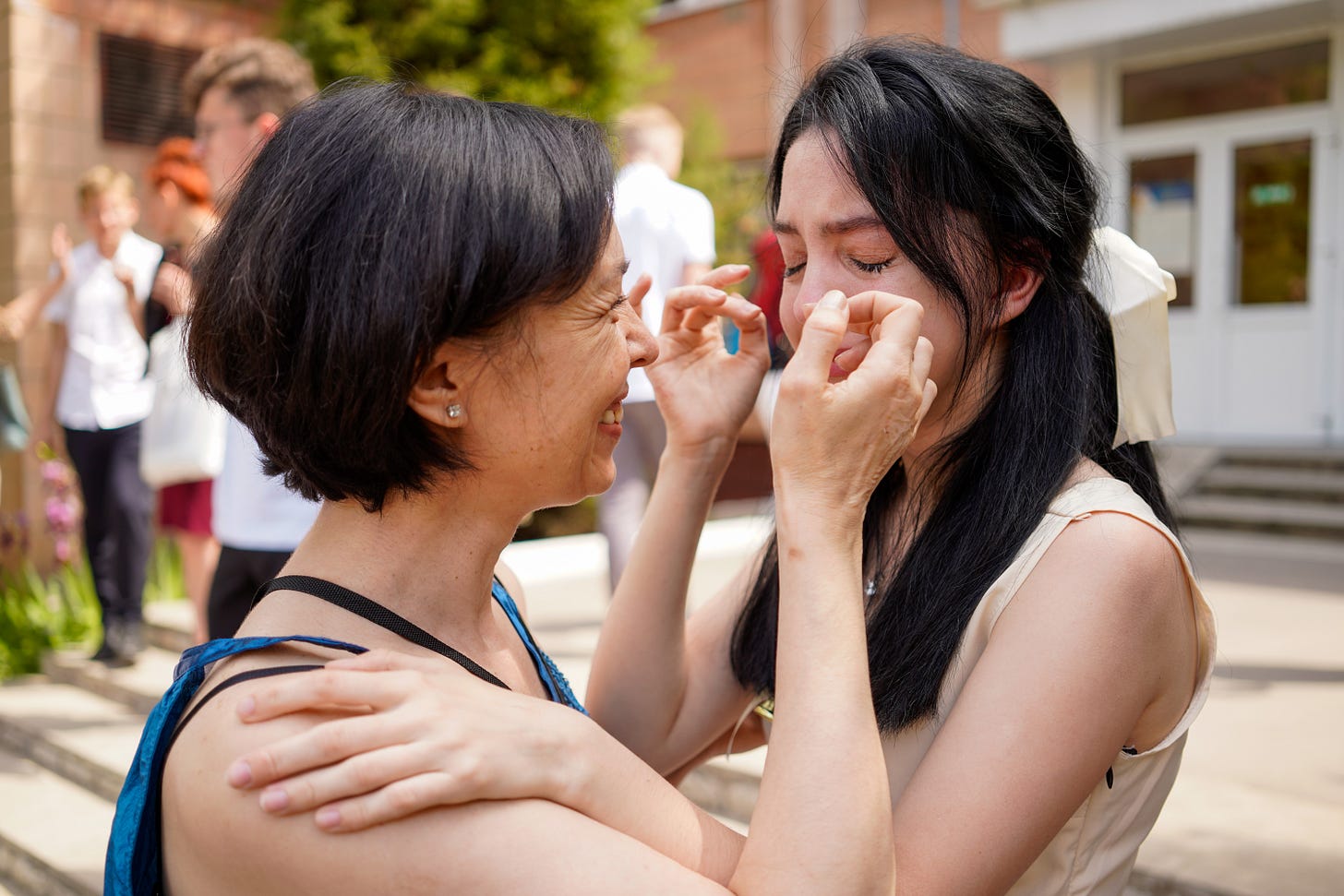

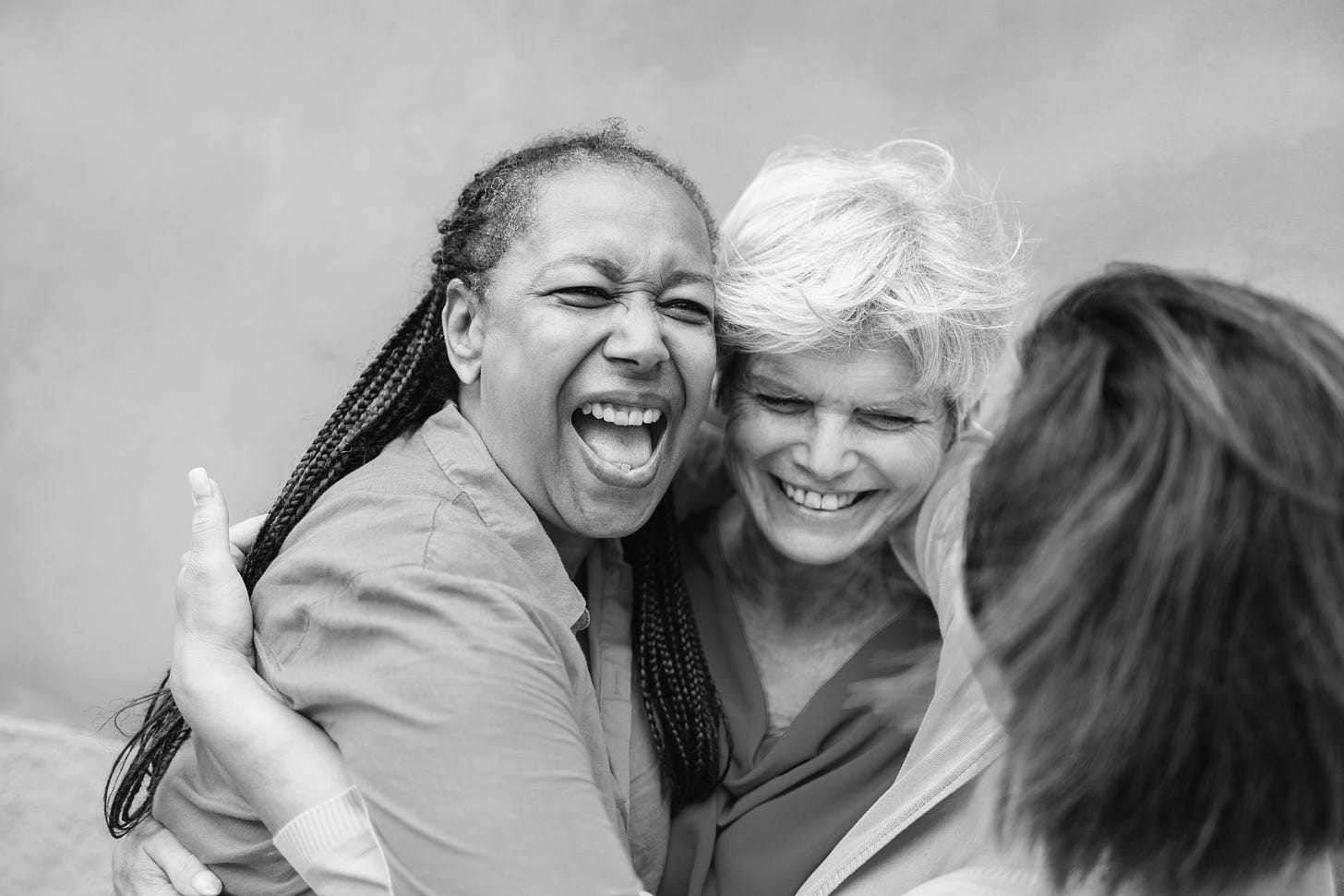


Great points, and path on a very important subject. Laughter is beyond important... Beyond simply feeling good, which is worthy in and of itself... When you are in a state that supports laughter, you are less susceptible to malice, misdirection and faulty reasoning.
Thanks for this post, it really rang true for me. It makes me think of peer support groups I faviliate for people who have experienced postpartum psychosis (a psychotic episode after having a baby). We often laugh about our experiences of the absolute darkest of times, and it's always so healing and such a release, and builds the bonds we have with each other.